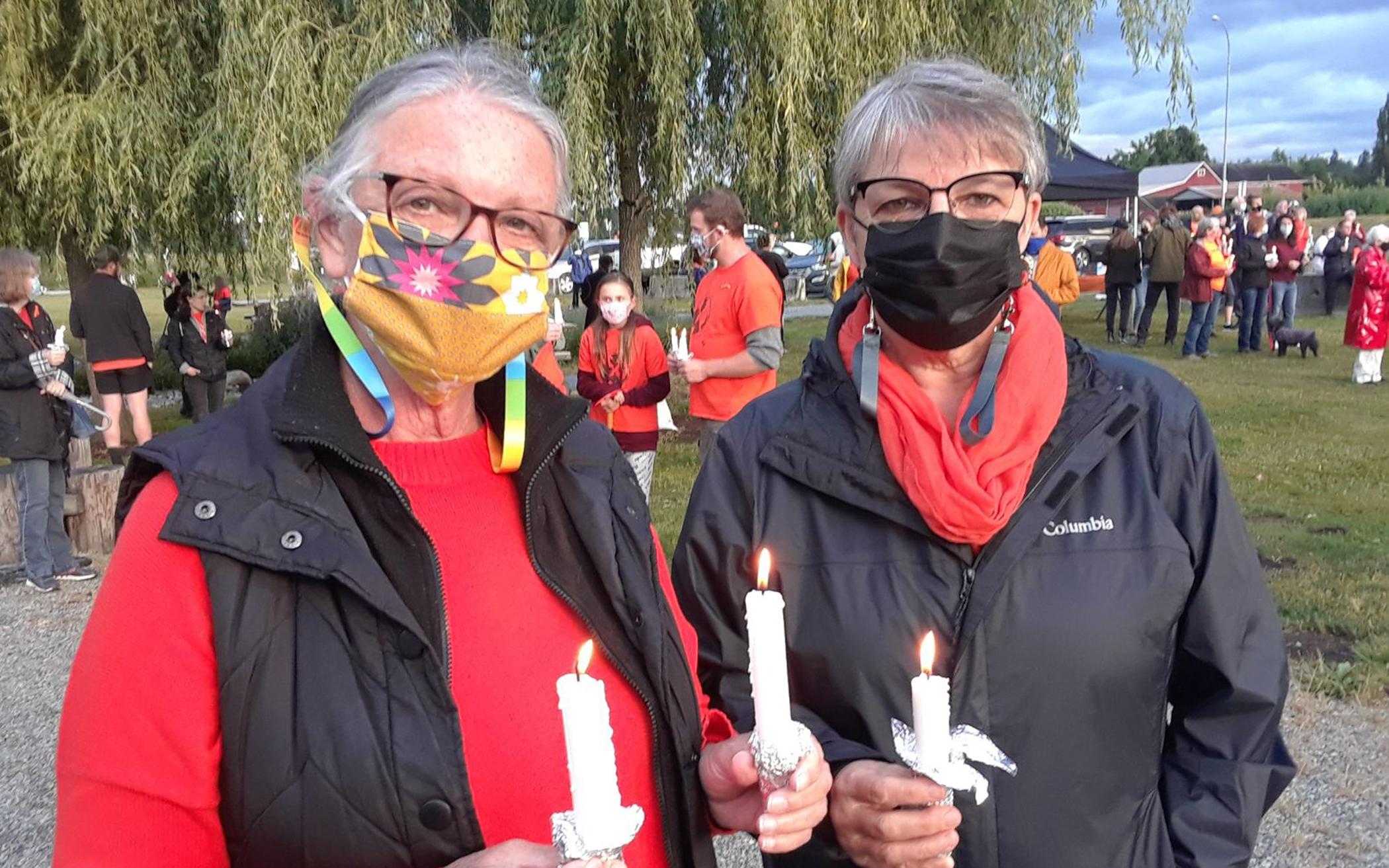Editor's note (Sept. 7, 2023): This story, published July 23, 2021, refers to news in May of that year reporting unmarked graves of children buried near the Kamloops (B.C.) Indian Residential School. The "confirmation of the remains" was reported May 27 by the Tk'emlúps te secwépemc First Nation. The article below did not take into account updated information about that discovery, released July 15, 2021, that clarified that what had been found were not remains but "probable graves" using ground-penetrating radar and that the number of probable graves was not 215 but 200. We publish this note in an effort to correct amplification of misinformation The Banner may have contributed to. No remains have been found at any of the sites mentioned and linked to in this article.
When Pastor Kelli Sexton and her team at Christ Community Christian Reformed Church of Nanaimo, B.C., planned their June 2021 services using a 2016 Reformed Worship resource on Reconciliation and Pentecost, they could not have imagined its timeliness. After news in May of the presence of an unmarked, mass grave near the site of the now-closed Kamloops Residential School in Kamloops, B.C., where the bodies of 215 children were buried, the liturgies they had chosen helped worshipers walk through those moments.
News of the graves sent waves of sorrow and anger throughout the province, the country, and around the world. Canada and the United States each have a long colonial and ecclesiastical history of creating residential schools and forcibly taking children from their families, language, and culture, creating a legacy of intergenerational trauma. (After the finding of graves in Kamloops, there have been subsequent news of other unmarked burials in Brandon, Man., Marieval, Sask., Cranbrook, B.C., and Kuper Island, B.C.)
Many Canadian congregations of the Christian Reformed Church have been walking a path of reconciliation between Indigenous and non-Indigenous Canadians. (See, for example, “CRC Members Participate in Canada’s Truth and Reconciliation Events,” “Walk for Reconciliation,” and “Reconciliation Matters to Maritime Churches.”) Christ Community’s Pentecost series included a sermon by Sexton that helped build an understanding about the Doctrine of Discovery, a teaching the CRC declared to be a heresy in 2016. From November to May the church’s Justice and Mercy team welcomed Tal James, an Indigenous leader in community ministry, to host five circles of listening, to learn about treaties, residential schools, and other first nations cultural understandings, contextualized for this Vancouver Island community. Over 20 households attended each zoom session.
For Pastor Darryl DeKlerk, news of the graves prompted a drive from Vernon, where he is pastor of East Hill Community Church, to pay tribute at the Kamloops site. In a weekly video message, he reflected back to his congregants on the experience.
Jana and Michael Vander Laan co-pastor Sahali Fellowship, a congregation in Kamloops. The news was sobering for this small congregation. “As much as the news was unexpected and devastating,” Michael said, “we should and could have known, had we paid attention to the Truth and Reconciliation Commission Report.” Canada’s Truth and Reconciliation Commission heard from survivors of the residential school experience and published findings in 2015.
Reading through the report’s 94 calls to action is a suggestion that leaders in the Christian Reformed Church included in a list of “Resources for Prayer and Action,” released with a statement about the Kamloops graves June 2, 2021.
The list also linked to resources from the CRC’s Canadian Indigenous Ministry, including the Hearts Exchanged cohorts and a discussion guide for the book Inconvenient Indian by Thomas King. Pastor Jenna Fabiano, at Willoughby CRC, used the guide to lead a four-session discussion at her church. Evelyn Groeneveld, one of about 15 people to participate, said it was “the beginning of a new understanding of the First Nations issues. I have been humbled, and my eyes have been opened. I value what this book and the group have provided in helping me to see things from a different perspective.”
About the Author
Jenny deGroot is a freelance media review and news writer for The Banner. She lives on Swallowfield Farm near Fort Langley B.C. with her husband, Dennis. Before retirement she worked as a teacher librarian and assistant principal.

